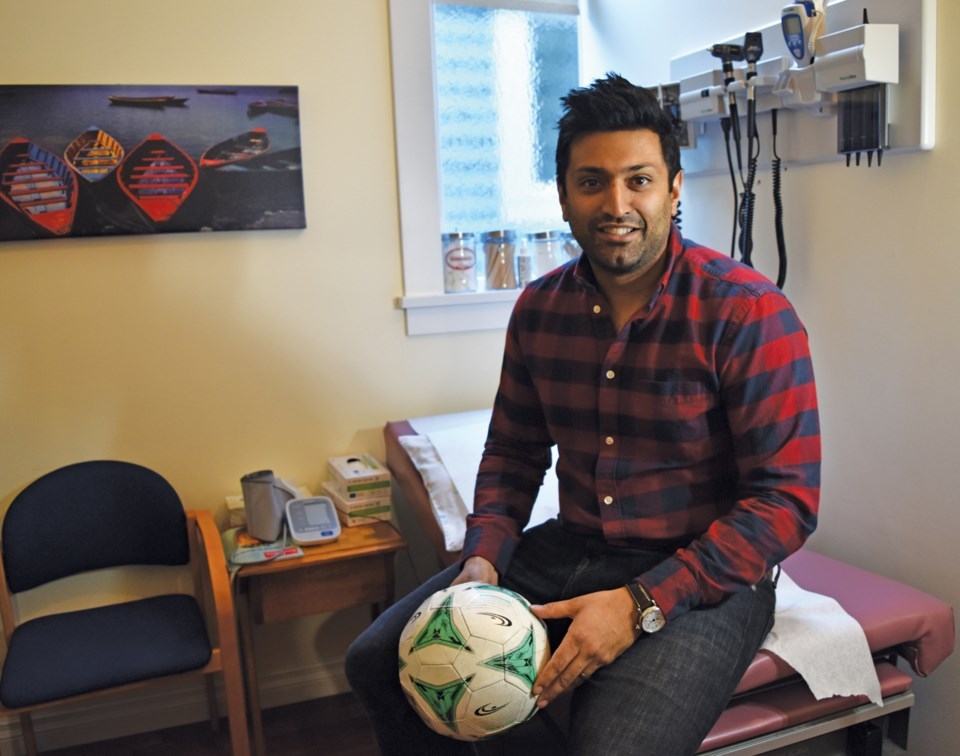The College of Family Physicians of Canada has kiboshed its proposal to extend family medicine residency from two years to three years, after a groundswell of opposition from doctors across the country led, in part, by B.C. doctor Paul Dhillon.
In a letter published Thursday to member doctors, Mike Green, the college’s president, said the college has “ceased the implementation of the third year in family medicine residency training,” after “unprecedented engagement” at last week’s annual general meeting wherein 91 per cent of family doctors favoured a motion from Dhillon and voted against the proposed third year.
The college had been working on implementing a third year of residency to address “increasingly complex and evolving needs of communities,” such as specialized care for elderly and Indigenous people.
But the proposal came as the country faces a shortage of doctors and governments are trying to lift red tape on the sector to hasten the pace of licensing.
While Dhillon acknowledged the profession has added complexities, he said family doctors are exiting medical school with debt between $200,000 and $250,000. Once a doctor completes residency at an annual salary of $70,000 they are typically 30 years old.
“You’re going to kill the profession if you’re going to do this,” Dhillon told Glacier Media Friday.
The Sechelt-based family doctor told Glacier Media the proposal was largely fashioned behind closed doors and came at a time when family doctors are facing increasing costs to run an office.
Dhillon’s motion was initially opposed by the college’s board, which claimed extensive consultation took place. But Dhillon said such consultation and even meeting minutes were not presented to members, even when he requested the information.
“The decision being made was a typical example of putting the cart before the horse,” said Dhillon.
Green’s letter conceded transparency on the proposal was poor: “We took too long to respond to your concerns, and the tone of our previous communications was unproductive. We accept responsibility for this, and we apologize.”
Dhillon said most provincial colleges opposed the move as well; for example, on Oct. 30, the B.C. College of Family Physicians stated it heard widespread concerns from doctors in this province.
“We firmly believe that any changes to the length of residency training should be thoroughly examined with opportunities for broad input for consideration,” stated the college’s board.
The proposal brushed up against several efforts to reform medical training and practice in B.C. and across Canada, noted Dhillon.
Last year, the B.C. government changed the family doctor payment model, which Dhillon says has been successful. The move now compensates family doctors for time spent on administrative tasks, for instance.
“It was able to stop the hemorrhage of family doctors out of the system, to use a medical term...They are able to breathe now and keep working,” said Dhillon.
Last month, health ministers announced changes to allow national licensure, which will allow doctors to freely move around the country; the move was initially opposed by B.C. Health Minister Adrian Dix, who expressed concerns about creating have and have-not provinces.
Still, said Dhillon, “that’s going to be a significant benefit; it will make it easier for physicians to move to B.C.”
Then there are new measures to license foreign-trained physicians as associate physicians and physician assistants.
“We want to see how they’re functioning as family physicians,” said Dhillon.
Dhillon said there are “intercultural differences in medicine” and our health-care system needs to maintain high standards of practice as any erosion “can have life and death or morbidity consequences;” however, governments and regulators need to increase capacity to license outside doctors.
To that end, in another move, B.C. has introduced an associate physician program for international medical graduates and tripled the number of practice-ready assessments, to 96 by March 2024.
This article was updated Nov.10 to clarify a quote from Dhillon on the payment model



